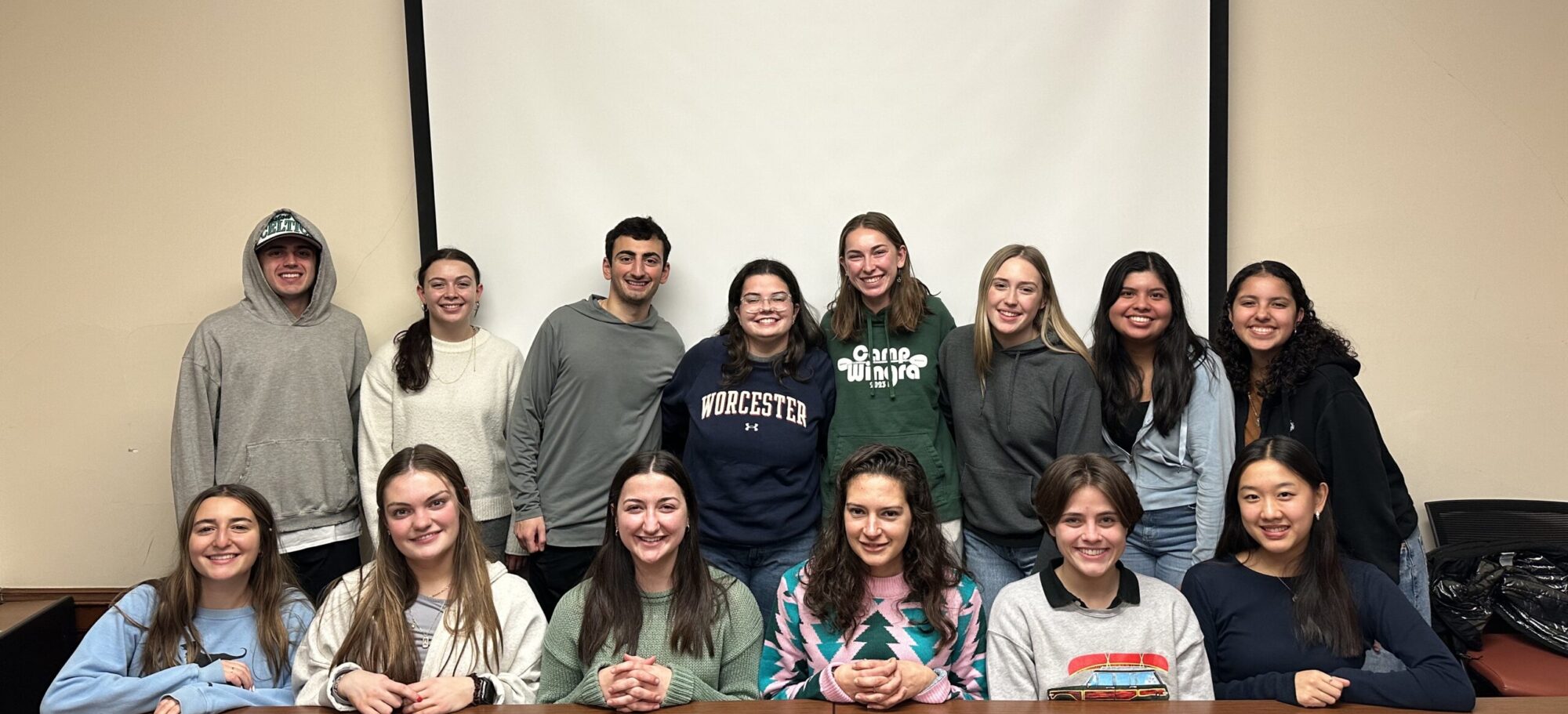The famous quote by Vivian Greene, “Life isn’t about waiting for the storm to pass. It’s about learning how to dance in the rain,” has been circulating social media recently to lift spirits amidst our current global crisis. Each time I have come across it, I have been confronted with wondering how I really can learn to “dance in the rain” while reflecting on what my responsibility to others and the larger society is during this painful time. Although I do not have answers to these questions at this point, my optimism and involvement with the Community-Based Learning (CBL) community has helped to carry me through so far and has prompted me to reflect on these questions.
As a student of a Jesuit institution, I have been reminded countless times of my call to be a woman “for and with others.” Empathy and mutuality have inspired me throughout many of my Holy Cross experiences and continue to be influential forces even as I am learning remotely, physically removed from campus. While early findings suggested that those who were young and healthy were at low-risk for becoming ill, even if they had contracted the virus, I realized that this did not leave my peers and me “off the hook.” I quickly learned of the severity of the spread of the infection as I came home to New York City, the epicenter of the virus. While I would propose that our immediate call to be “for others” is to stay home in order to reduce the risk of transmission, I believe that our responsibility to be “with others” is just as immediately necessary. In these times, I have been reminded of ways to show empathy and to consider the unique struggles and powers of marginalized populations. Through my involvement with CBL, I have gained a widened perspective on various systemic issues that cause certain populations to become vulnerable. Now, I can’t help but imagine how an added global health crisis deepens existing vulnerability and causes major financial and emotional strains on those populations.
One way I am harnessing my lessons from CBL is through unbound presence. In between Zoom classes and meetings, I have found more free time in my daily routine. While I may be tempted to jump right into tackling a “master checklist,” I have tried to embrace these quiet moments. I have realized that the coronavirus does not have a master checklist nor a set end date. As an organized and thoughtful planner, I have become very anxious that the only things that I can truly plan in advance are the meals I am going to eat for the week. Even though meal prep does bring me a lot of joy, it does not provide the level of structure to which I am accustomed. This pandemic has caused countless cancellations for the months ahead, including three summer opportunities I had been anxiously awaiting to participate in. In the absence of planning, I have been approaching each day with minimal expectations. This practice is one rooted in my engagement with those in Worcester. Most of the time at my CBL site I do not have a clear agenda or any expectation of what I am going to do. I find beauty in being present with the students with whom I work. Our responsibility to others, especially those we are living with right now, includes being more present with their needs – whether that means unloading the dishwasher before your family member gets to it or reaching out to an old friend.
As a Catholic, something that I have been reflecting upon is how the Lenten season prompts Christians to “give up” something as a sacrifice to God. I now believe that “giving up” has taken on a new perspective for Christians amidst the coronavirus. The tangible and intangible items individuals must give up during this time has been difficult to witness. My hope is that we, as a society, do not just “give up” completely. Rather, I believe that our responsibility to others is to instead “give in,” to show mercy, and to find ways to be in community with others from afar. Greg Boyle, S.J. beautifully summarized this idea by calling people, in the meantime, “to create fires that keep each other warm. In other words, in these times of physical distance, how can we “keep each other warm” through social connection?
Many people may be stuck in the mindset of viewing their days in relation to the number of days “stuck at home.” Instead, I propose to channel the hope of the message of Greg Boyle, S.J. to live out this time of social distancing as “one day closer to normal.” Even as we move forward in hope, viewing each day as one “closer to normal,” these times in which we are living are a “storm,” particularly for individuals and communities who are marginalized. Tragically, this “storm” has yet “to pass.” And yet, can living in the present and acting upon our roles and obligations to one another be our way to “dance in the rain”?



2 Replies to ““Learning how to Dance in the Rain” – Julianne Esteves ’22”